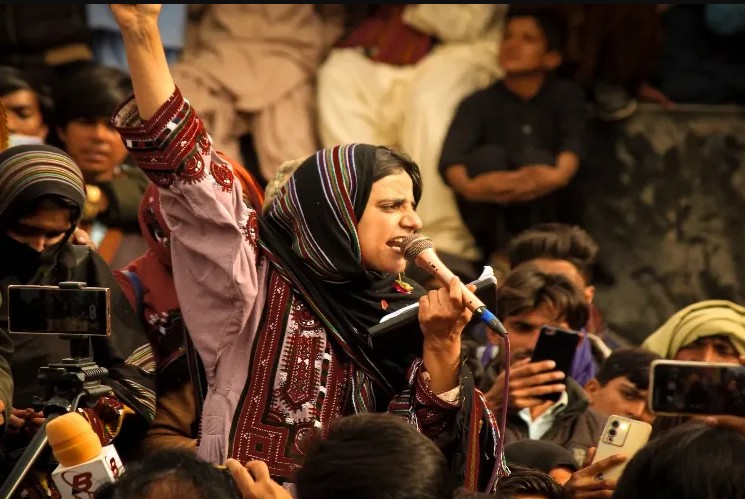
Balochistan [Pakistan]: The Baloch Yakjehti Committee (BYC) has condemned the illegal detention of its prominent leaders and the ongoing denial of access to their families and legal representatives, describing it as a serious violation of human rights carried out under the guise of judicial procedures. The incident has sparked widespread outrage and concern among human rights activists across the region.
In a statement posted on social media platform X, the BYC disclosed that on June 8, several leaders—including Mahrang Baloch, Shah Jee, Beebagr Baloch, Ghafar Baloch, Gulzadi, and Beebow Baloch—were unexpectedly moved from Hudda District Prison in Quetta to the Civil Lines Police Station under a 10-day police remand. Since then, they have been held incommunicado, with all requests for visits by their families and lawyers categorically refused.
The BYC further stated that, despite court orders granting visitation rights to their families, the police continued to block all access. Only the mothers of Mahrang and Beebow Baloch were allowed brief meetings. The denial of access has raised serious concerns about the detainees’ health and safety, especially amidst reports of torture and custodial abuse in Balochistan.
In response, the families have launched a peaceful protest outside the Civil Lines Police Station, demanding transparency and access to the detained leaders. The BYC asserted that these actions violate both national constitutional rights and international human rights standards.
The committee emphasized that the refusal of authorities to honor court orders and legal norms reflects an intentional erosion of due process, aimed at silencing Baloch political voices through unlawful and coercive measures. They described the detention of these leaders as a targeted attack on Baloch human rights defenders and called on both national and international human rights organizations to intervene and hold the responsible authorities accountable.
Balochistan, Pakistan’s largest yet least developed region, has been a long-standing center of political unrest, enforced disappearances, and arbitrary detention. Over the past decade, and especially in recent years, the scale and systematic nature of these detentions have increased significantly, drawing sharp criticism from local and international human rights groups.
